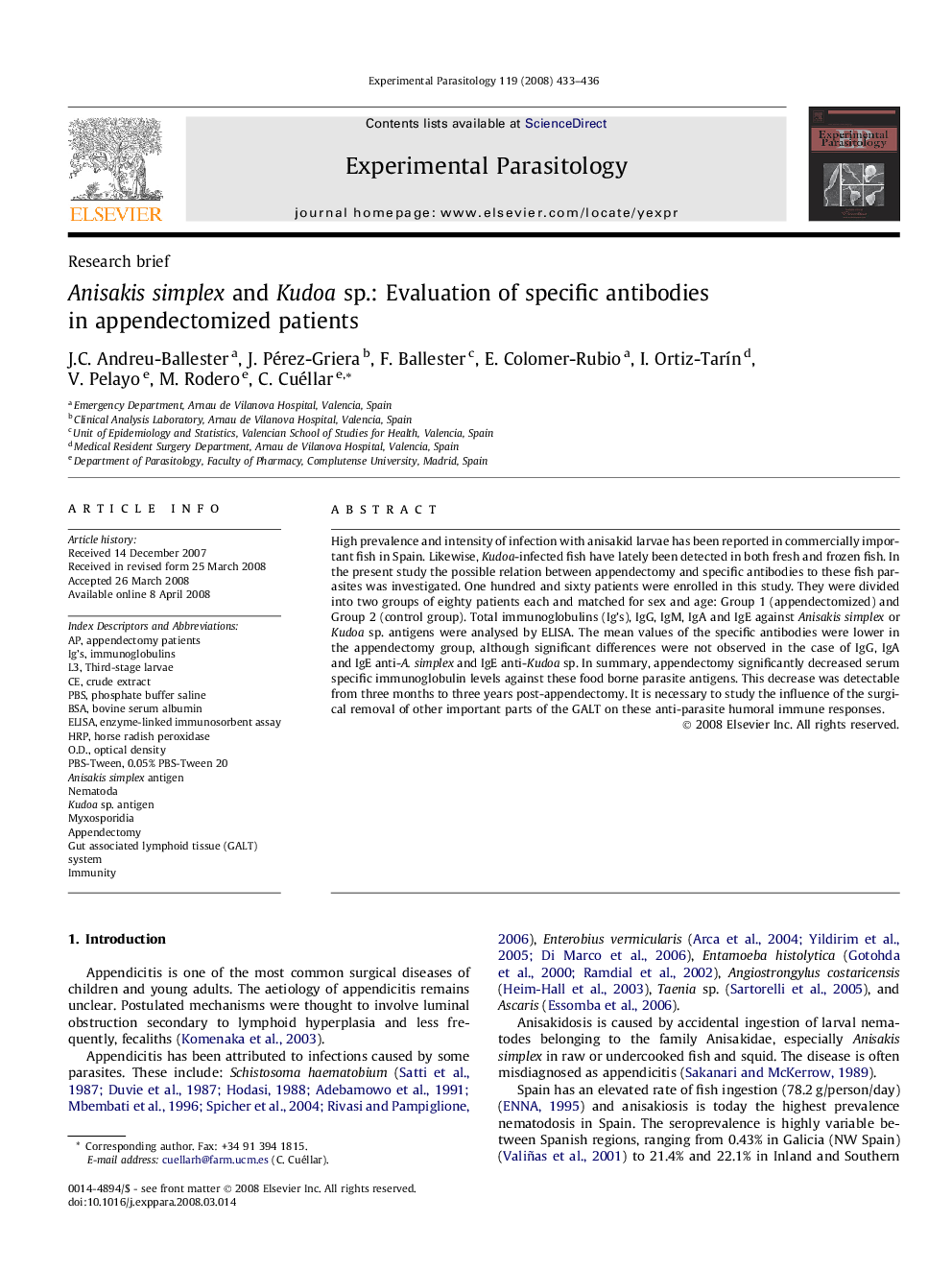| Article ID | Journal | Published Year | Pages | File Type |
|---|---|---|---|---|
| 4371690 | Experimental Parasitology | 2008 | 4 Pages |
Abstract
High prevalence and intensity of infection with anisakid larvae has been reported in commercially important fish in Spain. Likewise, Kudoa-infected fish have lately been detected in both fresh and frozen fish. In the present study the possible relation between appendectomy and specific antibodies to these fish parasites was investigated. One hundred and sixty patients were enrolled in this study. They were divided into two groups of eighty patients each and matched for sex and age: Group 1 (appendectomized) and Group 2 (control group). Total immunoglobulins (Ig's), IgG, IgM, IgA and IgE against Anisakis simplex or Kudoa sp. antigens were analysed by ELISA. The mean values of the specific antibodies were lower in the appendectomy group, although significant differences were not observed in the case of IgG, IgA and IgE anti-A. simplex and IgE anti-Kudoa sp. In summary, appendectomy significantly decreased serum specific immunoglobulin levels against these food borne parasite antigens. This decrease was detectable from three months to three years post-appendectomy. It is necessary to study the influence of the surgical removal of other important parts of the GALT on these anti-parasite humoral immune responses.
Keywords
Related Topics
Life Sciences
Immunology and Microbiology
Parasitology
Authors
J.C. Andreu-Ballester, J. Pérez-Griera, F. Ballester, E. Colomer-Rubio, I. Ortiz-TarÃn, V. Pelayo, M. Rodero, C. Cuéllar,
